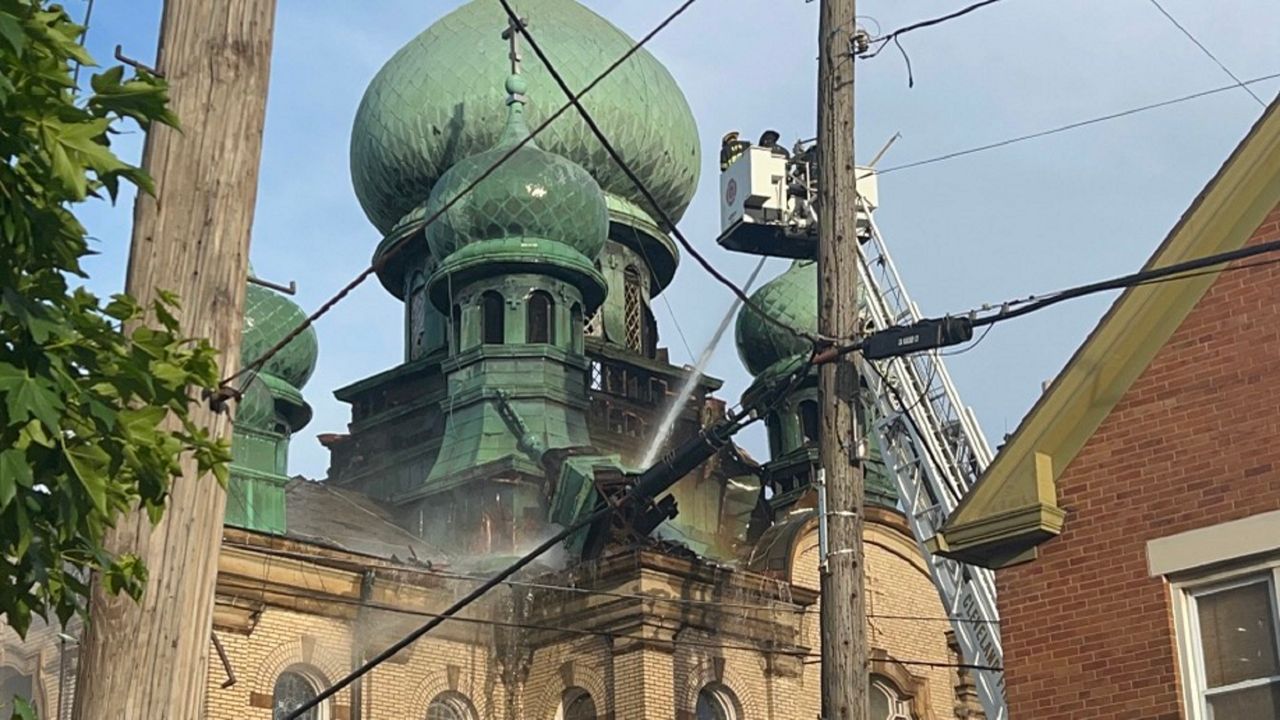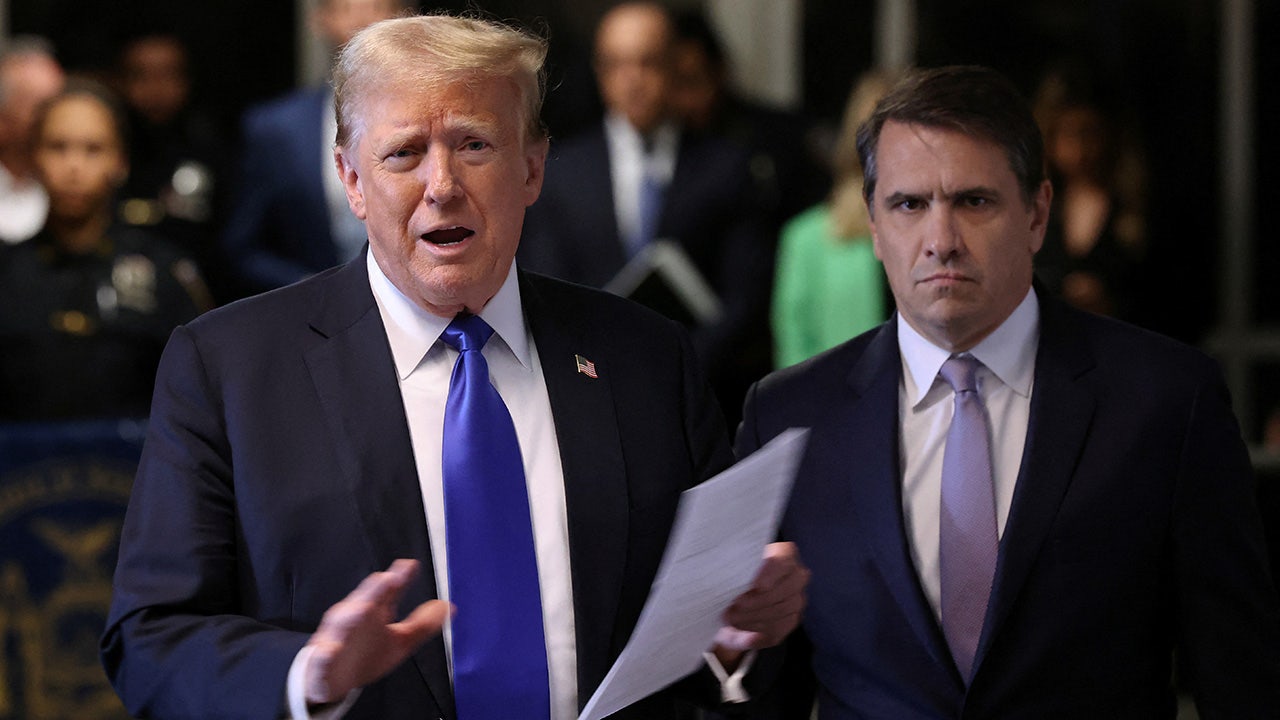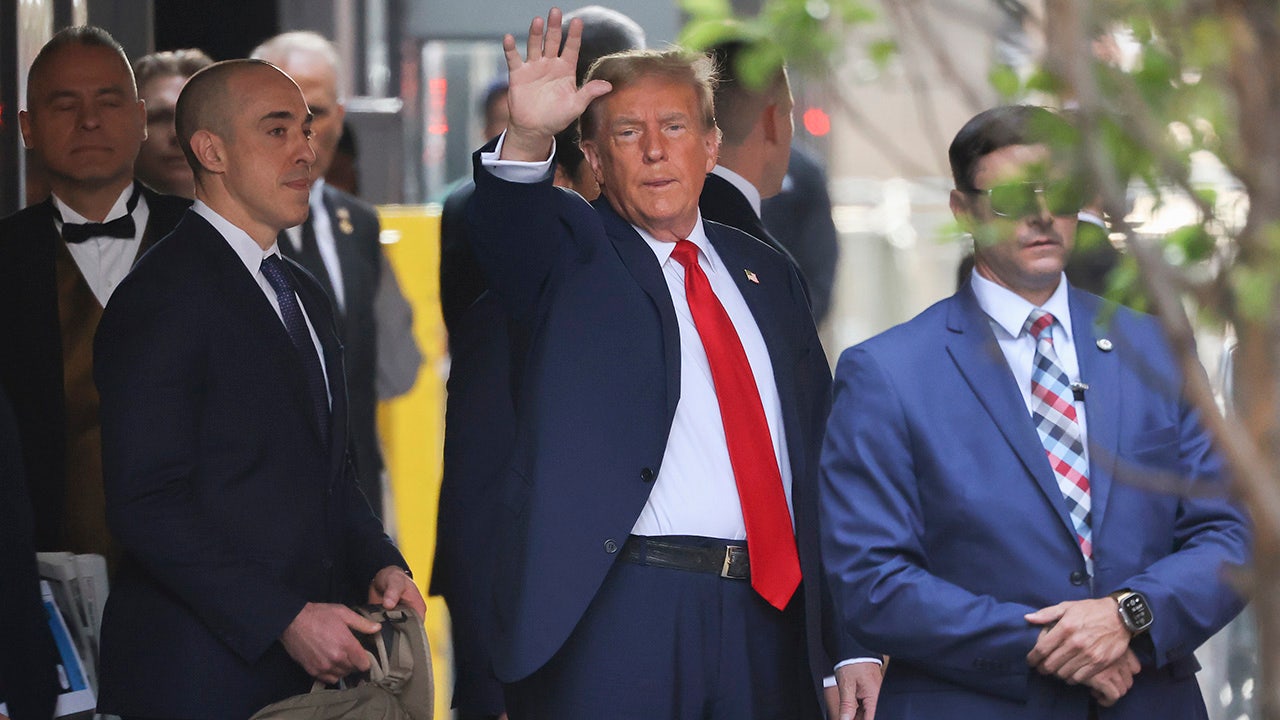World
Michael Lorenzen throws a no-hitter in his home debut with the Phillies, 14th in franchise history
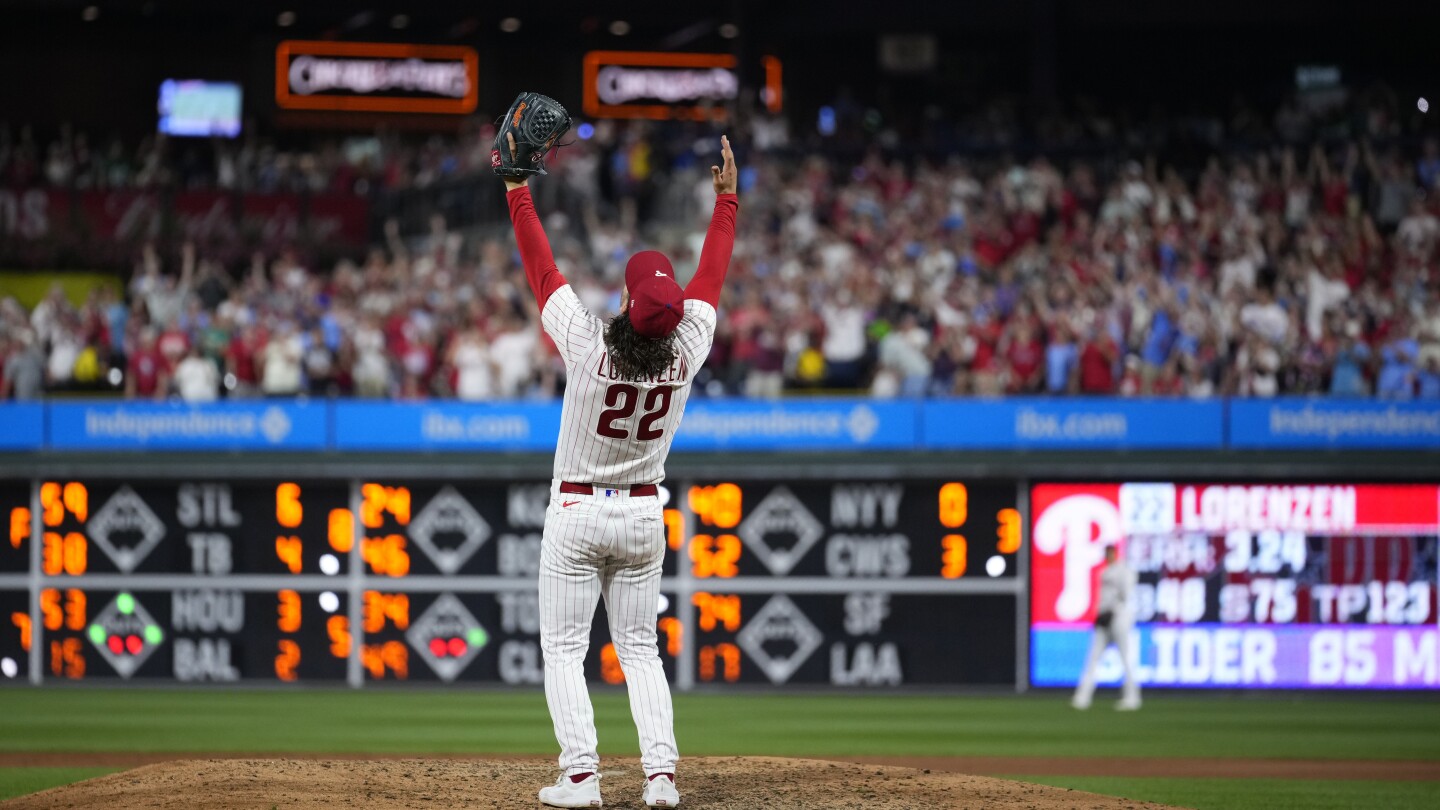
PHILADELPHIA (AP) — Michael Lorenzen walked to the mound to start the ninth inning — of just his second start with the Phillies, his first in Philadelphia — engrossed in the passion of fans roaring for him to complete a no-hitter, and considered the scene the coolest moment of his baseball career.
“Just walking out of the dugout, hearing the fans go wild, it gave me the chills,” Lorenzen said. “It gave that boost of energy that I needed, for sure.”
Boy, did it get wild in Philly just three outs later.
Lorenzen threw the 14th no-hitter in Phillies history, a dazzling performance that led Philadelphia to a 7-0 win over the Washington Nationals on Wednesday night. He became the fifth pitcher in major league history, and only the second since 1900, to throw a no-hitter in his home debut with a new team.
“Unbelievable, bro,” manager Rob Thomson said during a clubhouse toast. “Welcome to Philadelphia, buddy.”
The Phillies cheered for one of their newest teammates, who has settled in to near-perfection since he was acquired from Detroit at the trade deadline. Kyle Schwarber, Rhys Hoskins and other Phillies clapped, laughed and yelled “great trade” as general manager Dave Dombrowski walked through the clubhouse shaking hands.
The 31-year-old Lorenzen (7-7) struck out five, walked four and improved to 2-0 since he was acquired from the Tigers for a minor leaguer.
Lorenzen retired Lane Thomas on a grounder to open the ninth and struck out Joey Meneses looking.
The crowd of 30,406 erupted when Lorenzen induced a popup from Dominic Smith on his career-high 124th pitch to end his first career complete game in 2 hours, 9 minutes. Lorenzen stood on the mound and raised his arms in triumph before running into the waiting arms of catcher J.T. Realmuto. Lorenzen then flipped his cap backward and was mobbed by his teammates in a rowdy celebration near the plate.
“You’ve just got to live in the strike zone and hope they continue to hit balls right at guys,” he said. “That was kind of the story of the night. If you give up a base hit, you give up a base hit. So what?”
Lorenzen’s mother, Cheryl, and wife, Cassi, wept in the stands during the final out, with Cassi holding their 9-month-old-daughter, June. Lorenzen later held his baby aloft on the field and smooched her on the cheek.
His teammates lingered near the dugout and continued the line of hugs and high-fives — a sight not unlike the ones last October at Citizens Bank Park during Philadelphia’s run to the World Series.
Lorenzen proved he can play a key role in leading the Phillies back to the postseason.
The Phillies acquired the right-hander to stabilize their rotation as the defending National League champions battled the San Francisco Giants for the top wild-card spot.
Lorenzen pushed his pitch count to the point where it was questionable if Thomson would let him finish the game. But he kept the ball and became the first Phillies pitcher to throw a no-hitter since Cole Hamels on July 25, 2015 against the Cubs. Hamels retired last week.
Thomson said he talked to Lorenzen after the seventh and told the righty he had only about 20 pitches left.
“You better get quick outs,” Thomson told him.
After a couple of labor-intensive innings early, Lorenzen settled down and made quick work of the Nationals.
“Honestly I was upset at myself for the first couple of innings, they were long innings, walking guys. And I knew I was just ruining my chances to go deep in this game,” Lorenzen said. “Just trying to buy some more innings and (Thomson) gave them to me. So hats off to him.”
Washington was no-hit for the first time in its 19 seasons since the franchise moved from Montreal. The Expos were last no-hit when the Yankees’ David Cone threw a perfect game on July 18, 1999.
The Phillies hadn’t even thrown a complete game this season. Their most recent was last Aug. 25 when Aaron Nola blanked Cincinnati.
The franchise’s 14 no-hitters include Roy Halladay’s against Cincinnati in the NL Division Series on Oct. 6, 2010.
The no-hitter was the fourth in the majors this season. Houston’s Framber Valdez threw one against Cleveland on Aug. 1. New York Yankees right-hander Domingo Germán pitched a perfect game at Oakland on June 28, and Matt Manning, Alex Lange and Jason Foley of Detroit threw a combined no-no against Toronto on July 8.
Lorenzen, an All-Star this season for the Tigers, threw a season-high eight innings of two-run ball in his Phillies debut last week.
Lorenzen already has one big souvenir from the no-no: Philadelphia’s grounds crew dug up the rubber and presented it to the pitcher in the clubhouse. And the Baseball Hall of Fame will be accepting another: Lorenzen’s white Vans spikes.
The Nationals simply tipped their caps.
“I thought he threw pitches around the zone, not really in the middle of the zone, so he made it difficult for us,” Thomas said. “I thought he made good pitches when he needed to. Especially when his pitch count got high, I thought he threw some good pitches to get some soft contact.”
Thomson improved to 38-36 in a career that began in 2015 with the Reds. He’s never won more than eight games in a season but figures to top that, and the Phillies are expecting many more.
“This game has punched me in the face so many times,” he said. “I’ve just got to rely on the work that I put in and trust and hope it’s going to pay off at some point.”
With a big moment in Philly, it did.
ROOKIE’S MEMORABLE DAY
Phillies left fielder Weston Wilson homered in his first major league plate appearance and after nearly 2,900 at-bats in the minor leagues.
Nick Castellanos homered twice to reach 200 for his career.
Wilson batted seventh and hit the third pitch he saw from MacKenzie Gore (6-9) into the seats in left-center. His solo homer gave the Phillies a 4-0 lead in the second inning.
Marlon Anderson was the last Phillies player to homer in his first MLB at-bat, on Sept. 8, 1998.
Wilson was selected by the Milwaukee Brewers in the 17th round of the 2016 draft, and had 2,836 plate appearances in the minors until he was called up Sunday from Triple-A Lehigh Valley.
Wilson, who turns 29 next month, was greeted by teammate Bryce Harper at the top step of the dugout, while his family cheered on one of the newest Phillies from the stands.
Wilson walked in the fourth inning, stole second base and scored on a bloop single by John Rojas that made it 6-0.
UP NEXT
The Nationals send LHP Patrick Corbin (7-11, 5.03 ERA) to the mound against Phillies RHP Aaron Nola (9-8, 4.58).
___
AP MLB: https://apnews.com/hub/mlb

World
The 47 Pro-Democracy Figures in Hong Kong’s Largest National Security Trial (Published 2023)

A court in Hong Kong convicted 14 pro-democracy activists on Thursday in a landmark political trial. They and dozens of other activists who had previously pleaded guilty now face potential prison time, highlighting the sweeping power of a national security law Beijing imposed to tighten its grip on the Chinese territory.
The trial centered on 47 opposition figures — politicians, academics and activists — whom the authorities accused of conspiracy to commit subversion. Here’s a look at who they are.
Joshua Wong, 27, became a prominent activist at age 14.
Benny Tai, 59, was a professor of law at the University of Hong Kong.
Twelve were elected lawmakers, who had often used their presence in the legislature to protest China’s encroachment on Hong Kong’s autonomy.
Mo had served as a lawmaker for eight years and is known as “Auntie Mo.”
Better known as “Long Hair,” Leung had been a mainstay of the opposition for nearly two decades.
Chan was Hong Kong’s first openly gay lawmaker.
Twenty-one had been elected district officials, including younger activists who were voted in after months of antigovernment protests in 2019.
Sham was a leader of an activist group that organized huge pro-democracy rallies throughout 2019.
Others were prominent activists who had worked on various social causes.
Ng was a former flight attendant who became a union leader.
Ho was a journalist who rose to fame in 2019 when, during her livestream of a mob attack on protesters, she herself was beaten by thugs.
Wong was a student leader who began her activism when she was in high school.
Lengthy Detentions Without Trial
The 47 defendants were charged in February 2021 with subversion for holding or taking part in an unofficial primary vote to select opposition candidates to run in elections.
Unlike other types of offenses, national security cases impose a high threshold for bail, which, in effect, lets the authorities hold defendants for months or even years before trial. Critics say that amounts to a presumption that defendants are guilty.
In hearings before the trial, 16 contested the charges and 31 pleaded guilty, including Benny Tai and Joshua Wong. On Thursday, the court in Hong Kong acquitted two of the defendants, Lawrence Lau, a barrister, and Lee Yue-shun, a social worker.
The charges carry prison sentences that range from less than three years to life.
The defendants and their lawyers are barred from commenting on the case. But legal experts say the democracy proponents are probably under enormous pressure to plead guilty because of the lengthy detentions, dwindling financial resources and the long odds of winning in a court modeled after China’s authoritarian system.
“The process is designed to be as painful as possible,” said Samuel Bickett, a lawyer and activist based in Washington, D.C., who was jailed in Hong Kong after scuffling with a plainclothes police officer in 2019.
The Transformation of Hong Kong’s Political Landscape
Starting in June 2019, Hong Kong was engulfed in widespread protests calling for greater freedom from China.. To quell the unrest, Beijing imposed a national security law in June 2020, days before the 47 democrats held the primary election that would lead to their arrests months later.
Most of the 47 have been jailed ever since. Their arrests effectively muted the city’s once-vocal opposition. China also imposed a drastic overhaul of election rules for Hong Kong that effectively barred pro-democracy candidates from running for seats in the legislature.
Protests began
Mass antigovernment protests began and escalated in intensity over months.
National security law enacted
The new law bans vaguely defined crimes of secession, subversion and terrorism, with a potential sentence of life in prison.
Pro-democracy primary
Pro-democracy candidates held a primary vote ahead of the upcoming Legislative Council election. The 47 defendants helped organize or participated in this event.
Original date of the election
47 people charged, most denied bail
They were charged with “conspiracy to commit subversion,” for organizing and participating in the pro-democracy primary. Most were denied bail and kept behind bars as a long legal process began.
New election rules announced
China announced new rules for Hong Kong elections, limiting candidates to only those deemed loyal to Beijing.
“Patriots-only” election takes place
More than 30 defendants were detained. Most of them had been jailed for almost two years before the trial even began.
Closing arguments concluded
Hong Kong passed its own national security law
A court began issuing verdicts
World
Spain's Parliament votes to grant amnesty to Catalan separatists through controversial bill
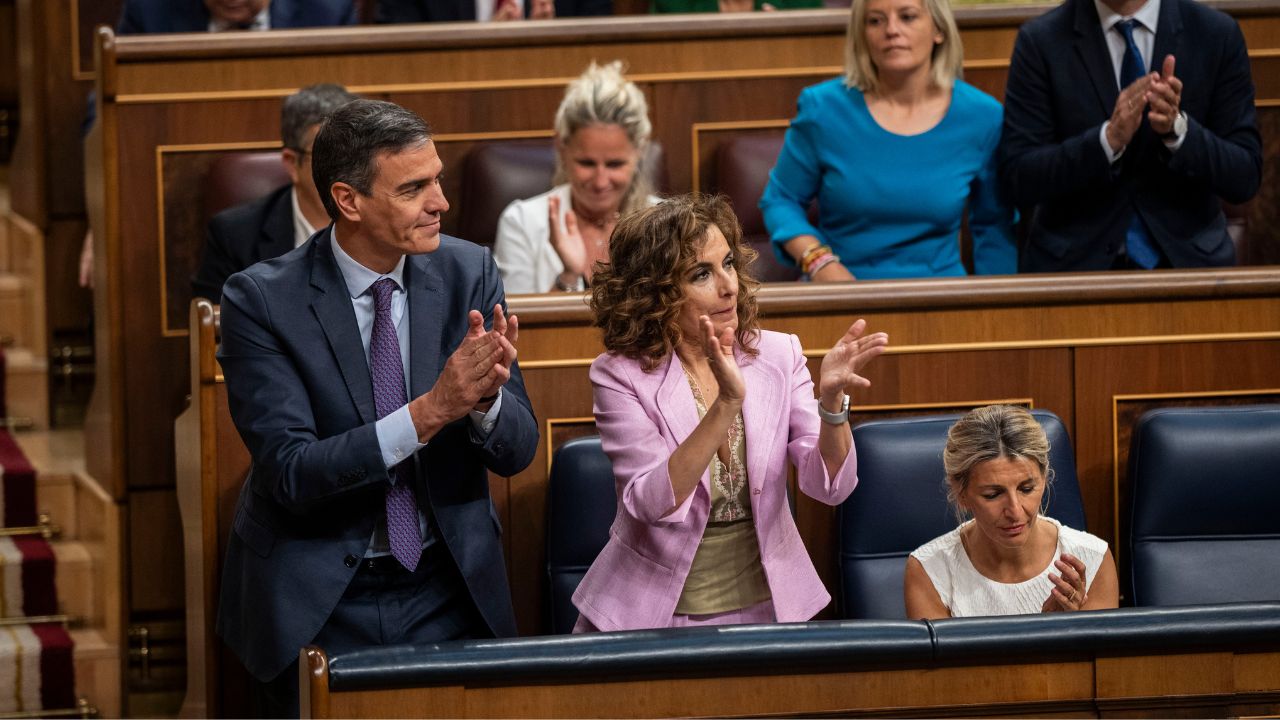
- Spain’s Parliament voted to approve a controversial amnesty law for Catalan separatists linked to a 2017 secession bid.
- The legislation garnered support from Spain’s left-wing coalition, Catalan separatist parties and smaller factions, passing with a 177-172 vote.
- Former Catalan President Carles Puigdemont and others are expected to benefit from the amnesty.
Spain’s Parliament voted Thursday to give final approval to a controversial amnesty law for hundreds of Catalan separatists involved in an illegal and unsuccessful 2017 secession bid.
The legislation was backed by Spain’s left-wing coalition government, two Catalan separatist parties and other smaller parties. It passed by a vote of 177-172 in the lower house with the conservative Popular Party and far-right Vox opposing it.
The amnesty could benefit former Catalan regional President Carles Puigdemont, who is a fugitive from Spanish law in Belgium after fleeing his country following the failed October 2017 breakaway bid that he led. It should also help hundreds more, including former government officials in Barcelona, average citizens who participated in the secession attempt or protests, and some police officers involved in the crackdown on an illegal independence referendum held by Puigdemont’s government.
SPAIN’S PARLIAMENT PASSES CONTROVERSIAL AMNESTY BILL FORGIVING CATALAN SEPARATIST CRIMES
The passing of the amnesty law, however, does not immediately clear up the legal mess of the separatists.
From left to right: Spain’s Socialist Prime Minister Pedro Sanchez, Spain’s Deputy Prime Minister and Ministry of Finance Maria Jesus Montero and Spain’s second Deputy Prime Minister and Labor Minister Yolanda Diaz applaud after the approval of an amnesty law at the Spanish parliament’s lower house in Madrid on May 30, 2024. (AP Photo/Bernat Armangue)
The law is likely to face legal challenges and will be reviewed by higher courts. It also must be applied by courts on a case-by-case basis. There are experts who question its constitutionality since they say it would create inequality between Spanish citizens by favoring some over others.
Since taking power in 2018, Spanish Prime Minister Pedro Sánchez has focused on reducing tensions in northeast Catalonia and he argues the amnesty is key to culminating that process.
But the amnesty was also a political necessity for Sánchez, who agreed to the act of pardon when he needed the support of separatist lawmakers in Madrid to form a new national government in November. It was initially approved by the Parliament’s lower house in March. The Senate, where right-wing parties hold a majority, vetoed it earlier this month, but the lower house pushed it through regardless.
SPANISH PARLIAMENT TO VOTE ON CONTROVERSIAL AMNESTY BILL FOR CATALAN SEPARATISTS
Tensions ran high in the chamber. The vote was by roll call with each lawmaker standing up to vote verbally. An opposition lawmaker shouted “traitor!” at Sánchez after he stood up to vote “yes.”
The Parliament’s session had already taken a nasty turn during the debate when Socialist spokesman Artemi Rallo was interrupted by a Vox lawmaker who shouted out several times calling him a “sellout” and “corrupt.”
“Europe, Spain and Catalonia have said ‘yes’ to the amnesty, even if you don’t like hearing it,” Rallo shot back. He was referring to the endorsement of the amnesty law by the Council of Europe, a non-European Union institution that promotes human rights.
While the amnesty is popular in Catalonia, even among many unionists, the Popular Party and Vox have led protests against it in Madrid and other cities across the country. There have also been critics of the amnesty within Sánchez’s Socialist party.
Popular Party leader Alberto Núñez Feijóo tried to shame the Socialists for granting the amnesty in exchange for “seven votes” of Puigdemont’s party that it needed to stay in power. He also warned Sánchez that once it is passed, he should expect little favors from the separatists, whose support is key to keep his fragile government in power.
“This is an exchange of power for privileges and impunity,” Feijóo said.
The long legislative road for the amnesty comes to an end during the runup to European Parliament elections on June 6-9 and when the Socialists are trying to form a government in Catalonia after beating the separatists in regional elections earlier this month.
The amnesty covered crimes related to the Catalan separatist movement between November 2011 and November 2023. The government estimates that several hundred people could be covered, while the separatists put that figure in the thousands.
After Sánchez pardoned nine leaders of the movement in 2021 who were in prison, there appear to be no separatists currently behind bars. But many face possible prison terms, fines, prohibitions from running for public office or potential trials.
The parliamentary spokespeople for the Catalan separatist parties had no words of gratitude for Sánchez and his government. Instead, they praised their followers and former leaders who spent time in prison and those who left the country like Puigdemont.
“Today truly is a historic day. Today there is no forgiveness. Today a battle has been won in a conflict that has existed for centuries between two nations,” said Míriam Nogueras, of Puigdemont’s Together party.
They also insisted that the next goal for the separatists will be to try to force Sánchez to go back on his pledge to never grant them an authorized referendum on independence.
Gabriel Rufían, a lawmaker of the Republican Left of Catalonia, told lawmakers, “Next stop: referendum.”
World
Spain passes bill granting amnesty to Catalan secessionists

Act of pardon draws a line under political turmoil set off by secessionist drive, but could face further legal hurdles.
Spain’s parliament has greenlighted a bill granting amnesty to hundreds of Catalan secessionists involved in a botched breakaway bid seven years ago.
The controversial bill, passed 177-172 on Thursday, will see courts annul the legal records of hundreds of officials and activists involved in crimes related to Catalonia‘s secessionists push from 2011, paving the way for a return of the movement’s exiled leader, Carles Puigdemont.
The act of pardon draws a line under Spain’s worst political crisis in decades, which saw Catalan pro-independence leaders, who had won the 2015 regional election in Catalonia, hold a full referendum in 2017 that was declared illegal by Spain’s constitutional court.
The bill, opposed by the conservative Popular Party (PP) and far-right Vox, has had a rocky ride through parliament.
Initially approved by the lower house in March, it was vetoed in the upper house, where right-wing parties hold a majority, earlier this month. But the lower house pushed it through regardless.
Even though it has now been passed, it is likely to face legal challenges.
Earlier this week, a PP spokesman said that the party would do everything to “overturn” the law, whether through appeals to the Constitutional Court or “social pressure” on the street.
The law must also be applied by courts on a case-by-case basis, with individual judges deciding whether the amnesty applies.
They have two months to raise issues with the Constitutional Court or the European justice system which could delay its implementation for some time.
‘Forgiveness’
“Forgiveness is stronger than resentment,” said Spanish Prime Minister Pedro Sanchez after the bill was passed.
Sanchez had put forward the amnesty proposal in exchange for support in parliament from Catalan secessionist parties enabling him to stay on as prime minister after an inconclusive election last year.
The new law paves the way for the return of independence figurehead Puigdemont, leader of Together for Catalonia (JxCat), one of the parties that had backed Sanchez’s coalition government.
Puigdemont led the 2017 secession drive before fleeing the country and going into self-exile in Belgium, where he has resided ever since while evading extradition. Other pro-independence leaders are also exiled.
Spaniards are divided over the amnesty, the bill having caused large protests over the past few months.
In a survey by the El Mundo newspaper in March, 62 percent of respondents across Spain rejected the amnesty, but in the Catalonia region alone most voters – 48 percent – supported it.
-

 Culture1 week ago
Culture1 week agoFrom Dairy Daddies to Trash Pandas: How branding creates fans for lower-league baseball teams
-

 News1 week ago
News1 week agoRed Lobster files for bankruptcy after missteps including all-you-can-eat shrimp
-

 News1 week ago
News1 week agoThe states where abortion is on the ballot in November : Consider This from NPR
-

 News1 week ago
News1 week agoRead Prosecutors’ Filing on Mar-a-Lago Evidence in Trump Documents Case
-

 Politics1 week ago
Politics1 week agoMichael Cohen swore he had nothing derogatory on Trump, his ex-lawyer says – another lie – as testimony ends
-
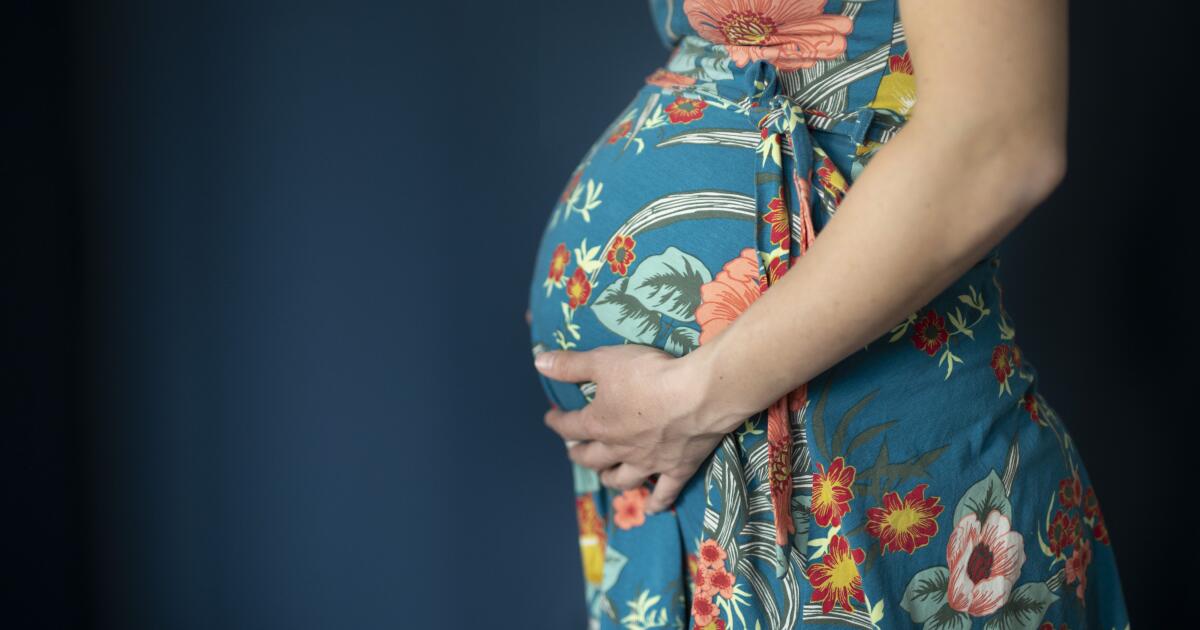
 Science1 week ago
Science1 week agoPregnant? Researchers want you to know something about fluoride
-
News1 week ago
Trump's social media account shares a campaign video with a headline about a 'unified Reich'
-

 Politics1 week ago
Politics1 week agoAnti-Israel agitators interrupt Blinken Senate testimony, hauled out by Capitol police






